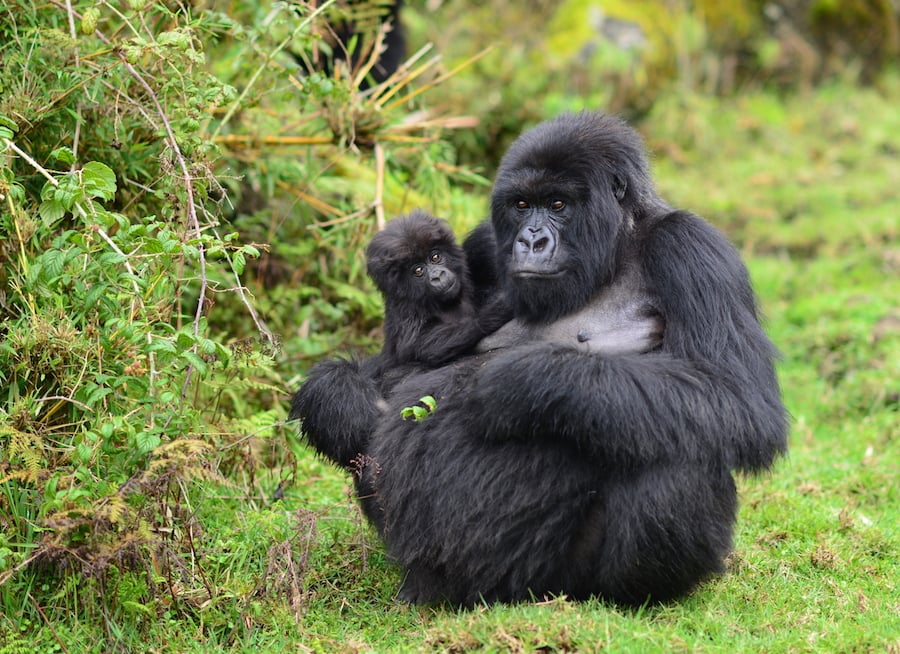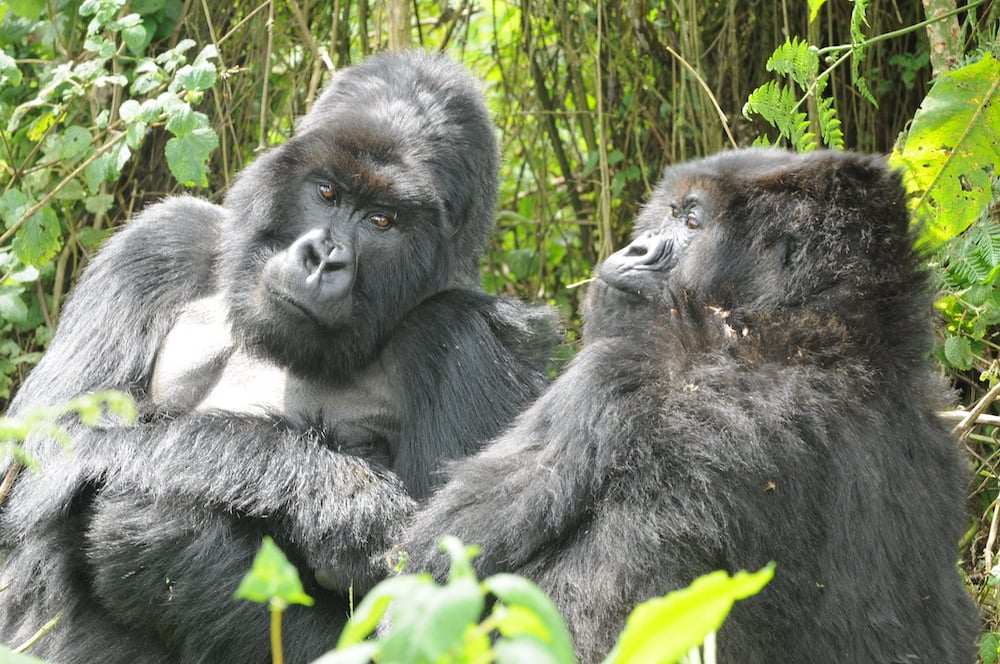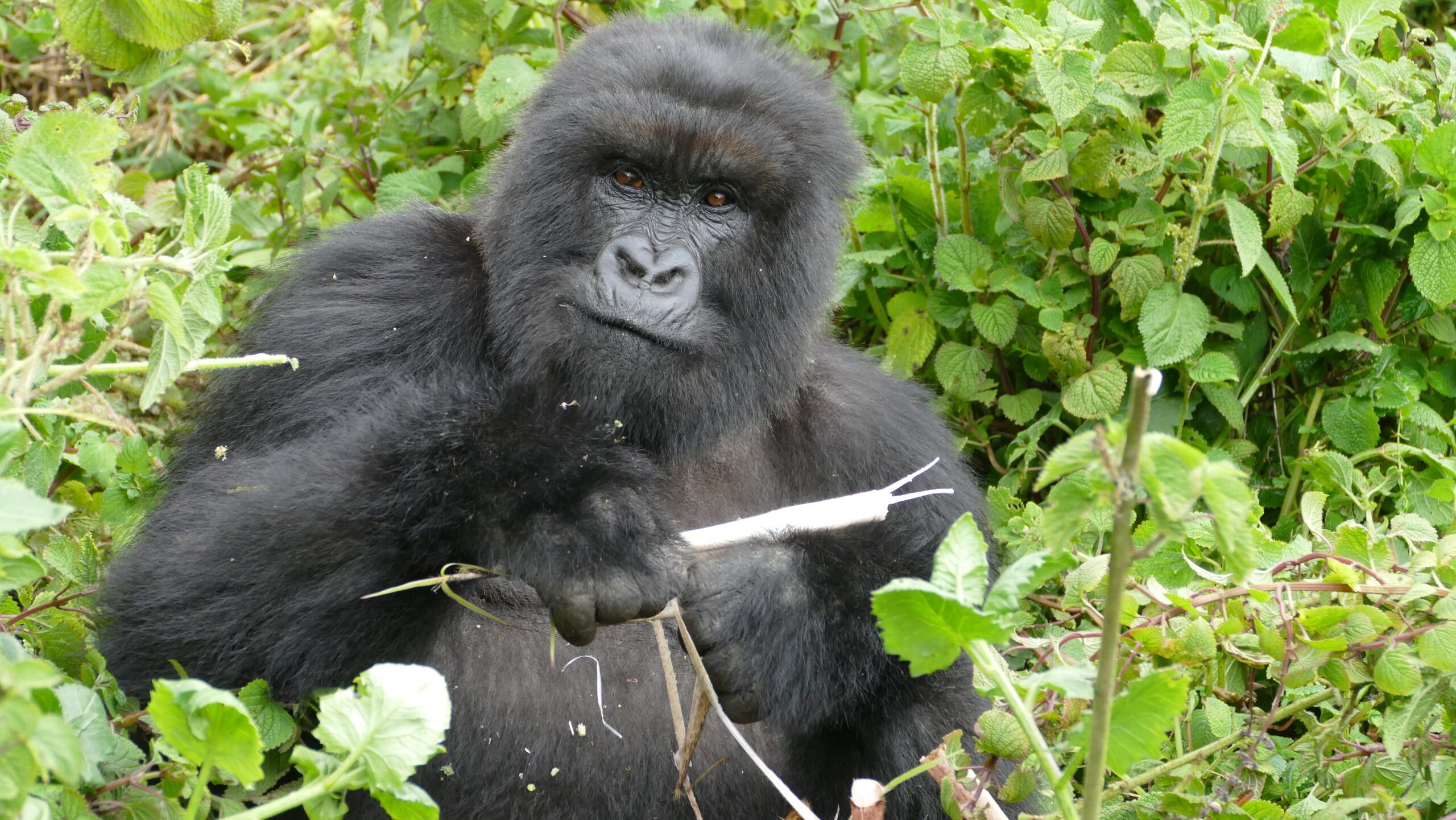By Cedric Ujeneza, communication assistant, Rwanda
Although gorillas have been portrayed as ferocious animals, the truth is that they are quite peaceful, live in loving family groups, and form close relationships with one another. At the Fossey Fund we have monitored mountain gorillas closely for more than 55 years, and have seen the many ways they show affection for one another, from grooming to babysitting to playing. And they don’t need to wait for Valentine’s Day to do it!
Here is a closer look at some of the ways that I’ve observed gorillas showing affection, as I carry out my work as a photographer with our field teams in Volcanoes National Park.
In Pablo’s group: Great babysitting
This historic gorilla group has three powerful silverbacks, led by dominant silverback Gicurasi, and numerous females, four of whom currently have infants. The silverbacks have a powerful presence, but they also have a gentle side, especially when it comes to taking care of the infants in the group. Sometimes they even hold watch over the various infants, especially when the group is resting.
This type of “babysitting” is quite common. Adult and juvenile females are often seen taking care of other females’ infants in their groups, helping to raise and protect them. This allows the mothers to rest or forage for food, knowing that the infant is in good hands.
In Pablo’s group, for instance, young female Ubukombe is frequently seen caring for infants, carrying them around, and nurturing them just like their mothers would. This will also help her when she becomes a mother herself.
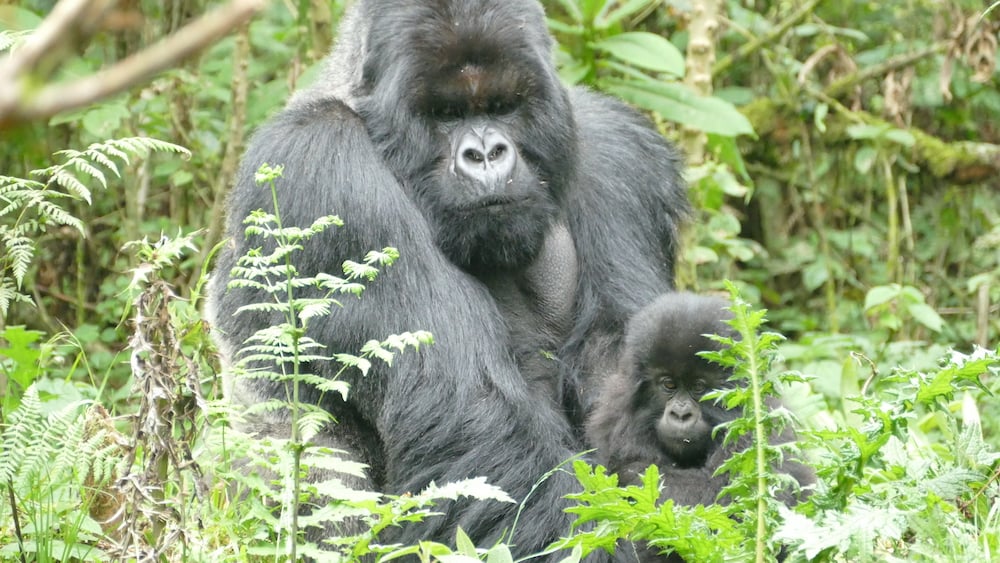
Gorilla affectionate behaviors may also aid in the integration of new females into a group. For example, 6-year-old female Inyange recently joined Pablo’s group during a peaceful interaction with another group and has quickly adjusted to her new group by forming strong bonds with the other gorillas, seen especially through grooming, play and cuddling behaviors.
In Kureba’s group: Grooming and playing
Nine gorillas make up Kureba’s group, including dominant silverback Ishavu, four females, three infants and one juvenile. I’ve enjoyed watching the gorillas in this group show affection through grooming while resting. This behavior involves gently picking through each other’s hair and removing any dirt or debris. It is also a great way for gorillas to bond and strengthen their social connections.
The three infants in this group – Mubyeyi, Kabeho and Imbaduko – along with juvenile Karame, spend the majority of their time playing together and are my favorite part of Kureba’s group. Through their constant play and interaction, the three gorilla infants have developed an unbreakable bond. They can often be seen running after each other, rolling around, wrestling with each other and laughing. As they grow, this bond is only likely to become stronger, creating lifelong friendships that will be an integral part of their individual development.
In Musilikale’s group: Mother-infant bonds
With 24 gorillas, Musilikale’s group is currently the largest mountain gorilla group the Fossey Fund monitors. The group has numerous females and silverbacks, six infants and four juveniles. With this large variety, there are a lot of affectionate displays to watch, both among the adults and the youngsters!
For example, we watch the mothers spend a lot of time cuddling, playing and nurturing their infants. Their devotion and constant affection not only contributes to the infants’ overall well-being but also strengthens their bonds. Observing Musilikale’s group is exciting for me as a photographer because I know I’ll always get some gorgeous pictures and videos of the mothers and infants. Their bonds are so strong and are heartwarming to see.
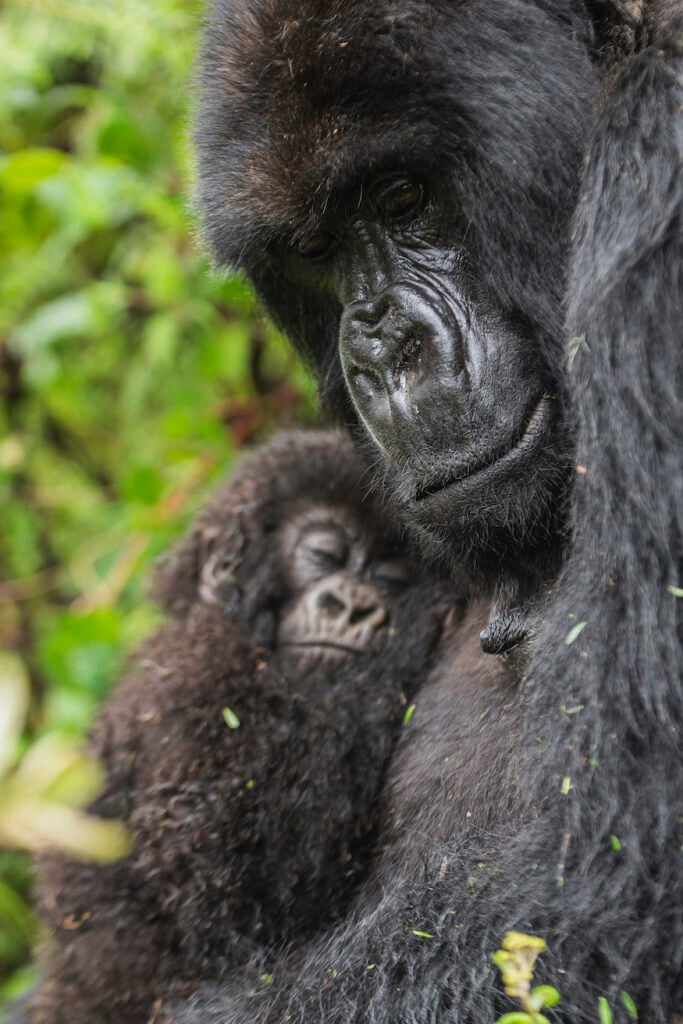
Dushishoze’s group: Mothers together
In this group, mother Gutangara as well as her grown daughter Shishikara have twice had the unique opportunity to raise their young infants together, demonstrating a unique bond through their cooperative parenting. This close relationship between the mother and daughter allows their babies to thrive, with both mothers ensuring that they receive the love, support, and nourishment they need to grow and develop. The two mothers are constantly close to each other and protect each other in times of need.
Also in this group, silverback Agahebuzo has a gentle and caring personality that makes him an ideal playmate for the infants in the group. He is patient and attentive, never getting frustrated with the infants’ behaviors and often allowing them to play with him while resting.
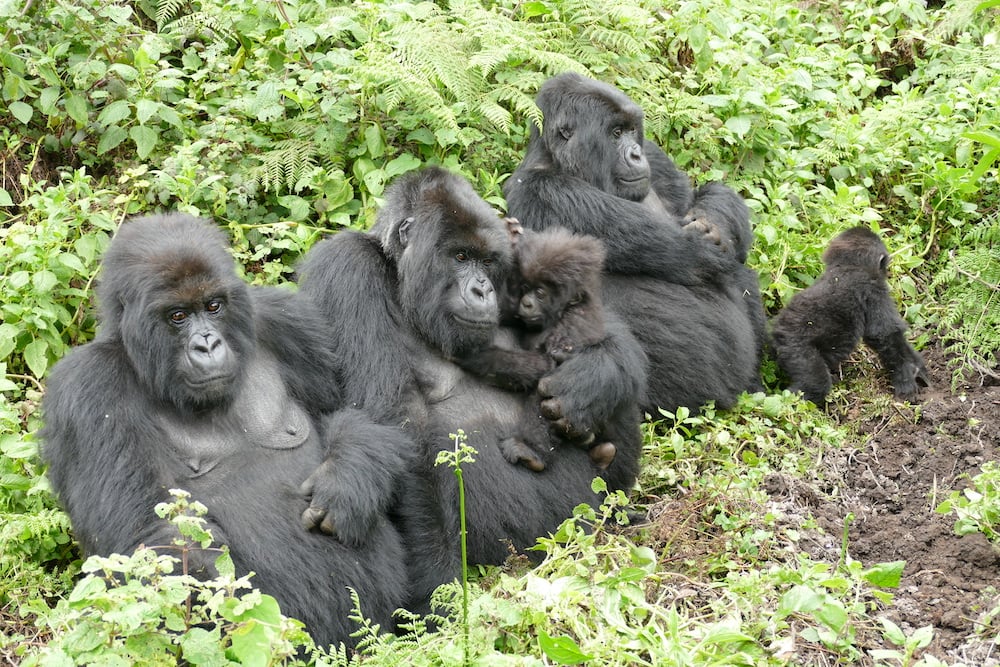
Love teaches us all
Working in the forest and having the opportunity to closely observe gorillas in their natural habitats has been one of the most incredible experiences of my life. Watching these magnificent animals interact and show affection toward each other has taught me a lot about their social behaviors and the depth of their emotions. These experiences leave a lasting impression and have reinforced my belief in the importance of conservation and protection for these amazing animals.

